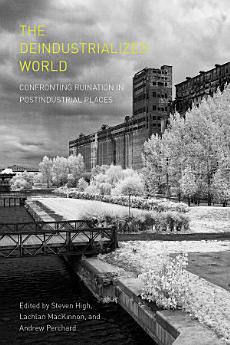The Deindustrialized World: Confronting Ruination in Postindustrial Places
About this ebook
Scholars from France, Canada, Australia, the United Kingdom, and the United States share personal stories of ruin and ruination and ask others what it means to be working class in a postindustrial world. Part 1 examines the ruination of former workplaces and the failing health and injured bodies of industrial workers. Part 2 brings to light disparities between rural resource towns and cities, where hipster revitalization often overshadows industrial loss. Part 3 reveals the ongoing impact of deindustrialization on working people and their place in the new global economy.
Together, the chapters open a window on the lived experiences of people living at ground zero of deindustrialization, revealing its layered impacts and examining how workers, environmentalists, activists, and the state have responded to its challenges.
About the author
Steven High is a professor of history at Concordia University and the author of a number of books on deindustrialization, including Industrial Sunset and Corporate Wasteland. Lachlan MacKinnon holds a PhD in history from Concordia University and specializes in workers’ experiences of deindustrialization in Atlantic Canada. Andrew Perchard is a senior research fellow at the Centre for Business in Society at Coventry University.
Contributors: Andy Clark, Jackie Clarke, Sylvie Contrepois, Andrew Hurley, Arthur McIvor, Tracy Neumann, Seamus O’Hanlon, Andrew Parnaby, Jim Phillips, Cathy Stanton, Robert Storey, and Lucy Taksa





